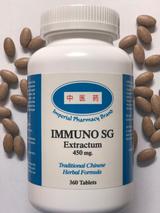TRADITIONAL CHINESE MEDICINE (TCM)
(introduction, facts, history, and philosophy)
Familiarization: Traditional Chinese Medicine (TCM) is a complete medical system that originated in China about 3,000 years ago. Modern TCM is a comprehensive professional health care field with TCM medical schools, research centers, and hospitals and clinics. TCM is commonly used and remains an important part of the health care systems in China, South Korea, Japan, and other Asian countries. Some form of TCM, especially, acupuncture, is also now practiced in many health care centers worldwide.
In the United States, TCM is a professional career that requires four years of TCM medical education at an approved TCM school and passing the State Board examination, in order to enter the profession at an entry level.
Not limited to using of these treatments, some commonly used TCM therapies are: TCM herbal medicine, acupuncture, electro-acupuncture, acupoint injection, moxibustion, thermotherapy, cryo-therapy, hydrotherapy, electrical muscle stimulation, massage, tuinna joint manipulation, food therapy (therapeutic diets), life style adjustment, qigong, meditation, and other disciplines that promote mind-control and progressive muscle relaxation.
In TCM, modern diagnostic procedures do not substitute the traditional clinical examination. The advances in medical engineering, however, have brought new options in diagnosis, and modern diagnostic procedures can assist in reaching a diagnosis or corroborating a diagnosis, and can ply and important role in deciding treatments and referrals. Today, a DOM may order laboratory blood tests, x-rays, CT-scan, MRI, PET scan, etc.
The medicinal ingredients used in TCM herbal formulas commonly derivate from three sources, animals, minerals, and vegetables. Due to the importance of animal preservation, some medicinal ingredients that originally came from animals (bile, hormones, bone minerals, etc.), are now used from synthetic sources. The most commonly used TCM herbal remedies come in the forms of infusions (decoctions), oral liquids, pills, tablets, capsules, granules, intramuscular injections, suppositories, enemas, poultices, plasters, creams, and topical solutions. Herbal infusions for intravenous administration are also commonly used in TCM hospitals.
During the past 30 years in the United States, TCM has become very popular, in a way, due to its effectiveness in curing and alleviating many conditions for what Western medicine has no cure or have very little to offer.
The World Health Organization published a wide range of medical conditions for which acupuncture can be a suitable treatment. The National Institute of Health (NIH) promotes the use of acupuncture for various medical conditions (low back pain and inflammation, postoperative pain, nauseas due to chemotherapy, etc), and well-recognized medical institutions such as MD Anderson, Sloan Kettering Cancer Center, and other, have established Integrative Medicine programs.
History: There is the false notion that Chinese medicine is new to this part of the world. Traditional Chinese Medicine has been available in the West since the mid 1800's, when the first large number of Chinese workers came to the United States and Cuba (those are the first migrations of Chinese to the Americas, and also the beginning of Chinese Medicine in the Western hemisphere). In those group together with the Chinese laborers came TCM doctors, who soon opened their practices and herbal shops in the so-called "Chinatowns" or "Barrios Chinos".
In a historical context, what is correct to say is, "acupuncture and Traditional Chinese Medicine in general, was not well known or popular among Western people until recently". TCM began to be taught professionally in the United States about 30 years ago. There are now approximately 60,000 practitioners in the United States, and more than 50 approved TCM schools (TCM medical schools require approval certification from the ACAOM (The Accreditation Commission for Acupuncture and Oriental Medicine) (a national accrediting agency recognized by the U.S. Department of Education for the accreditation and pre-accreditation (Candidacy) of schools with Master and Doctorate educational programs in Oriental Medicine).
Philosophy: In Traditional Chinese Medicine, the patient is seen as an integrated microcosm. In healing the body, the emphasis is not only in alleviating the symptoms but also in finding and resolving the cause of the illness or functional disharmony. In this effort, Traditional Chinese Medicine takes into consideration a full spectrum of facts, internal and external that can affect the proper biological function of the organs and the physiological inter-relationship of the entire organism as a whole. That's why this approach is often called "holistic medicine".
It has been said: "In Western medicine the body is often seen as a complicated machine that if something goes wrong, it must be replaced or fixed immediately". In Chinese medicine, "the body is seen as a garden that must be cultivated and organized in order to function properly". Both, the Western approach and the Chinese approach, are valid, and the clinical value and use of each system must be considered according to each individual case. There are cases for which Traditional Chinese Medicine is more appropriate, and vice verse, there are medical conditions for which conventional Western medicine is "clearly" the priority. What is more, patients suffering from cancer, lupus, and some other chronic conditions, tend to respond better when treated by both medical systems combined.
Comment: Traditional Chinese Medicine is growing fast in the United States, but unfortunately, many doctors and patients are still unaware of the health benefits from TCM. The state of ignorance about TCM is even worse in Latin America, where with few exception, most countries lack TCM practice regulations and TCM schools are virtually absent.
Traditional Chinese Medicine (TCM) is the oldest continued professional medical practice; it shares with Western Medicine the responsibility for providing medical care to the majority of the population in the world. We, at TCM Physicians Clinic, strive to provide excellence in health care using the best of Traditional Chinese Medicine and Integrated Oncology.
Back






